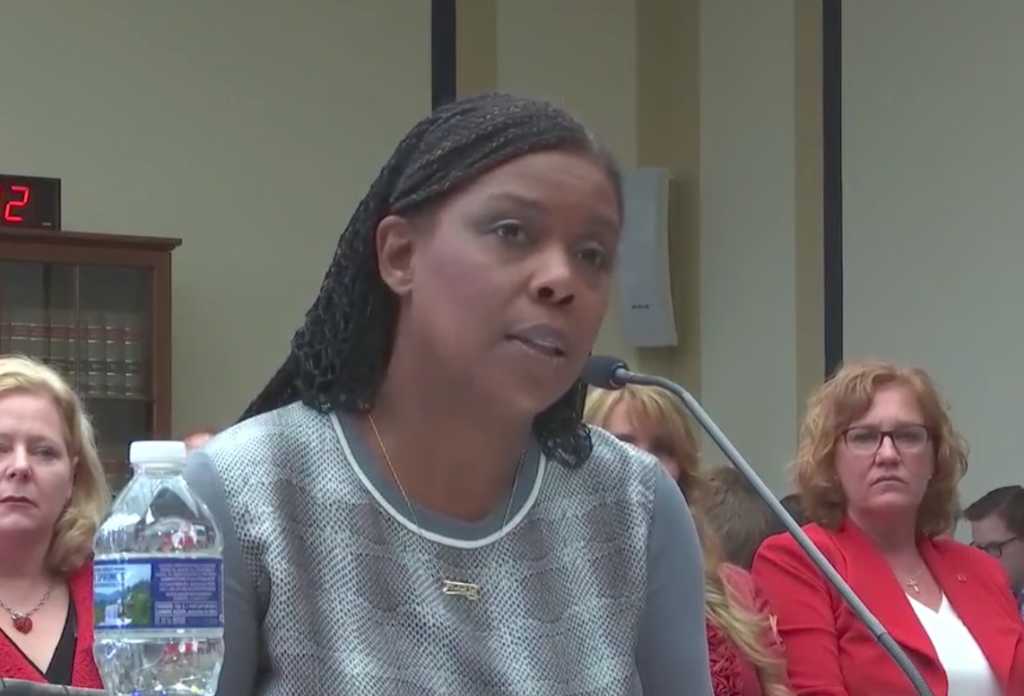The House Judiciary Committee’s Subcommittee on the Constitution and Civil Justice last week heard testimony regarding H.R. 490, the Heartbeat Protection Act of 2017, sponsored by the committee’s chairman, Rep. Steve King (R-Iowa). It is “decades past the time to defend the sanctity of human life,” said King about the need for a law which will criminalize an abortion if the provider does not determine if the fetus has a “detectable heartbeat” and informs the mother, or if the provider performs an abortion after a heartbeat has been detected.
Rep. King is not the only one who has spoken strong and powerful words about the sanctity of unborn human life. Star Parker, who is a columnist and president of the Center for Urban Renewal and Education (CURE), spoke in favor of the bill, with regards to the dangers minority communities face with abortion:
The abortion industry all across America, in particular our most distressed communities, is preying on our nation’s most vulnerable, brutally dismembering their offspring. And yet their is no federal protection that the woman considering abortion see full disclosure about the human being growing within her.
Recently a famous rapper named Nicki Minaj, told Rolling Stone magazine that an abortion of her youth still haunts her, a heart-wrenching story being told many times over, thousands of times, distraught men and women, in hundreds of communities all across our great country.
I was once such woman, when years ago lost in sexual recklessness, had four abortions without any counsel nor any information from the abortion providers about the distinct humanity of the life that was growing within me. I heard all the propaganda of the abortion peddlers, in school and media, from community and political leaders. Yet I heard nothing of the infant developing in the womb nor any information about their mortality.
Perhaps then one might argue that little was known about the development or mortality of an embryo or a fetus. Very few instruments were available to medically or scientifically detect heartbeat. But today, due to modern technology, this is not an argument that can be made. In particular, with the advent of ultrasounds, where we can now hear and measure a heartbeat in the womb.
She also likened abortion to slavery, after sharing further anecdotal evidence of how abortion has harmed communities:
I implore you to please consider my above testimony on behalf of the innocent life growing in the womb, and the vulnerable men and women considering an abortion. But if you will also consider in your deliberations regarding H.R. 490 the last time in American history that we were faced with hard constitutional political questions on the civil conflict between humanity and convenience, personhood and property, justice and public opinion.
Slavery was, as abortion is, a crime against humanity. Like slavery, tensions were created in a public square and in law concerning who qualified for natural rights worthy of protection. In the first 89 years of our nation’s existence, it was the black slave who sought freedom and equal protection under the law, and many attempts were made to heed their cry.
…
Today, it is the conceived person living in the womb of its mother that should be considered human with opportunity of equal protection under the law. It is ironic that while the Fourteenth Amendment of the United States Constitution in 1868 humanized slaves, the United States Supreme Court of 1973 dehumanized the life of the being in utero, handing down a decision … to once again allow a powerful few to determine exactly who had a right to humanity.
As with slavery, while special interests groups put tremendous pressure on legislators and judges to dehumanize blacks so that they could protect slavery, today, similar pressure is put on legislators and judges by the eugenicists movement and other special interest groups regarding abortion. If the baby in utero is not a human being in the fullest sense of that term, than he or she has no natural right to life. However, if the opposite is true, then humanity in the womb is entitled to the constitutional right to life. Ignoring the advent of ultrasound and other medical devices that make it abundantly clear that the baby in utero is alive and indeed human is a disservice to women, and to a society built on the constitutional rights that protect us all.
It is fitting to not only emphasize how slaves and unborn children have both been denied their true humanity as dictated by God and by science, but how the Fourteenth Amendment has been allowed to go on misinterpreted for far too long.
Parker also went on to comment on how minority communities are targeted by abortion providers such as Planned Parenthood, lamenting that abortion is the leading cause of death in the black community.
You can watch her comments here:
In the 1973 U.S. Supreme Court decisions of Roe v. Wade and Doe v. Bolton, 7 men on the Court decided that women in all 50 states had the right to an abortion, based on the so-called right to privacy, which was based on a penumbra, or feeling from the Constitution. They drew not only from the 1965 decision of Griswold v. Connecticut, but from their interpretation of the Fourteenth Amendment, specifically to do with the rights of “liberty,” and ignoring the right of “life” for unborn Americans.
While Parker’s comparison was an apt one, and her expertise and knowledge on the issue and other issues, such as further effects on abortion, not all were ready to hear it. Rep. Steve Cohen (D-Tenn.), a pro-choice Democrat who is against the bill, referred to her as having “ignorance” and being “ignorant” during his time to ask questions at the hearing.


